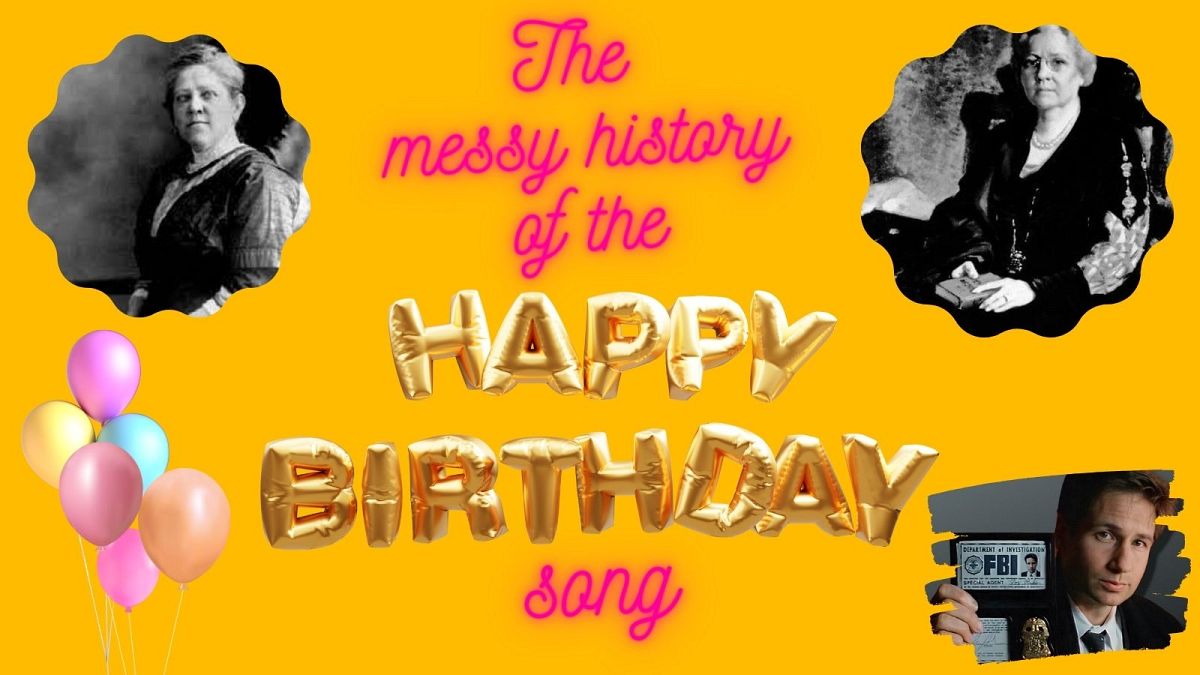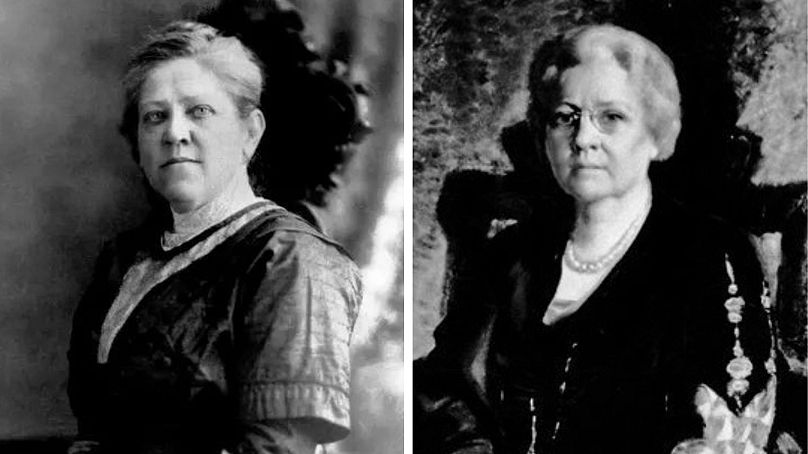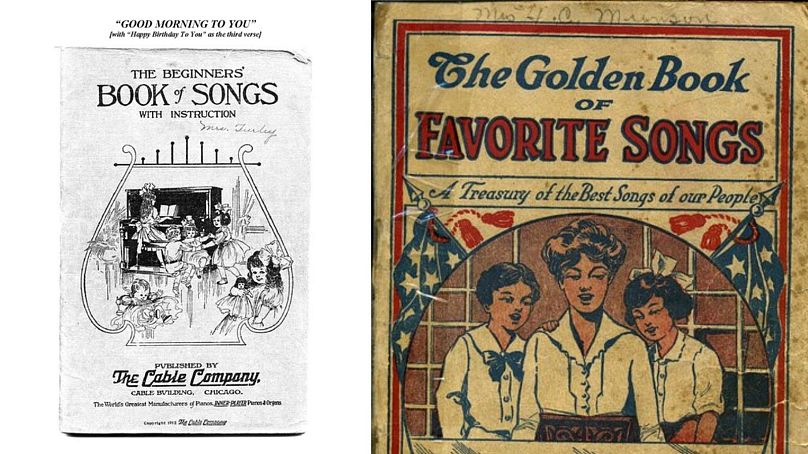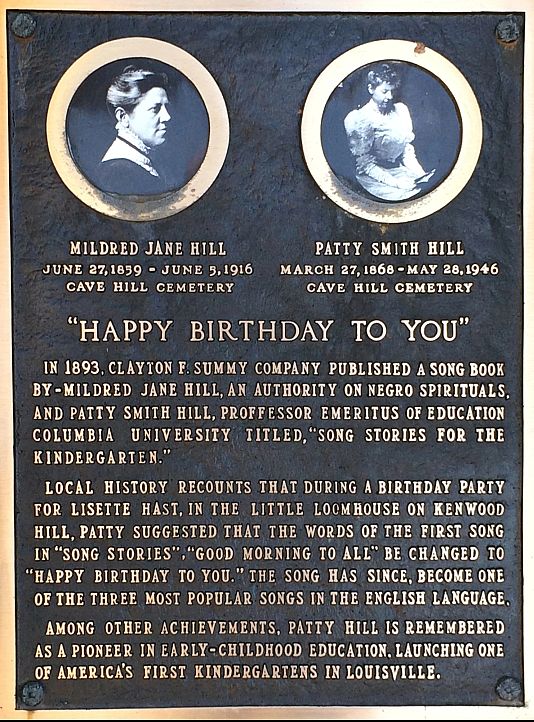On this day in 1893, the copyright claim for the 'Happy Birthday' song was filed – which kickstarted a long and messy journey for the highest-earning single song in history...
It’s Friday the 13th and as much as we’re dying to tell you all about Friggatriskaidekaphobia, the fear of the dreaded date, we already did that earlier this year.
We’re also aching to celebrate the fictional birthday of The X Files’ Fox Mulder, the modern (and paranormal obsessed) Don Quixote, but that would seem a bit self-serving as we regularly prove to you how much we’re fans of the show here at Euronews Culture – most lately with our 30th anniversary celebration.
So instead, we’re sticking with the birthday part and cluing you up on the song 'Happy Birthday' and its long (and surprisingly messy) copyright history.
You all know how it goes, as the song is, according to the Gunness Book of World Records, the most recognised tune in the English language – followed by ‘For He’s a Jolly Good Fellow.’
We had our money on ‘Wannabe’ by the Spice Girls, but there we go. Every day is a learning day.
The instantly-recognizable melody is used throughout the world, and the lyrics have been translated into almost 20 languages.
But did you know that on this day in 1893, the copyright to the ‘Happy Birthday To You’ song was registered, meaning that any time the song has been used in a movie, a royalty needed to be paid?
It all began back in 1893, in Louisville, Kentucky, US.
The song’s melody comes from the song, 'Good Morning to All', written in 1893 by sisters Patty S. Hill and Mildred J. Hill.
Mildred, a musicologist, wrote the tune and Patty, a kindergarten teacher, put some child-friendly words to it: “Good morning, dear children / Good morning to all”. (The verse about birthdays was added later, and considering the kiddies loved it, it spread like wildfire.)
Patty originally included the composition in the book "Song Stories for the Kindergarten", then in "The Beginners’ Book of Songs with Instruction", and the original version of the song was sung by teachers who would sing it to their students at the beginning of class.
How times have changed...
The book was published by Clayton F. Summy who filed a copyright claim for all the songs. While success (and therefore money) was slow at the start, he renewed his copyright claim for the song in 1921, by which time the song had become synonymous with birthday parties. Ka-ching.
However, in the 1930s, Patty and Mildred’s younger sister, Jessica, noticed that the song wasn’t being properly attributed to her family. When the song was featured in the Broadway musical 'As Thousands Cheer', she took matters into her own hands and sued the musical’s directors.
It 1935, after the 'As Thousands Cheer' lawsuit was settled, the Hills officially registered the copyright of the birthday-centric lyrics of the song, in order to avoid future disputes.
But it didn’t end there.
Record scratch: the Hills realized that Summy was short-changing them on the royalties they were owed.
Round 2: They formed the Hill Foundation, Inc. in order to file another lawsuit against Summy. This ended with the Summy Company being granted the rights to the Hill sisters’ songs, and the sisters getting only one-third of all the revenues.
Skipping ahead (trippingly) to 1988, when Warner Chappell Music purchased the company owning the copyright, the Birch Tree Group music publishers, for $25 million. The song had a value estimated at $5 million.
Filmmakers would get around paying the fee by never completing the song or by singing the aforementioned 'For He’s A Jolly Good Fellow'. Some who did pay the fee include Steve James for his 1994 documentary Hoop Dreams. James said he paid $5,000 for use of the song – which is impressive when you consider that the total budget for the film was around $700,000.
Later, the 2003 documentary, The Corporation, noted that Warner charged as high as $10,000 (€9,400) for the song to appear in a film.
This all made the song the highest-earning single song in history, collecting an estimated $2 million (€1.8 million) a year in licensing fees.
However, that all changed when a filmmaker, Jennifer Nelson, brought a lawsuit in June 2013 in a New York court.
Nelson had been making a documentary about the 'Happy Birthday' song since 2013, and to use it legally ,Warner was going to charge her $1,500 (€1,400). This led her to file a lawsuit seeking the court to declare that the song is in the public domain.
On 22 September 2015, US District Court Judge George H. King ruled in favour of filmmakers by putting the song into public domain. The copyright claim was declared invalid and Warner Chappell agreed to pay back $14 million (€13.2 million) in licensing fees.
So, if ever you were wondering why people didn’t sing the ‘Happy Birthday’ song in movies and TV shows prior to 2015, it’s because of these crazy – now defunct – licensing fees.
To think it all started, rather innocently, in a classroom...
So, all together now:
Happy Birthday to you.
Happy Birthday to you.
Happy Birthday Special Agent Fox Mulder.
Happy Birthday to you...






